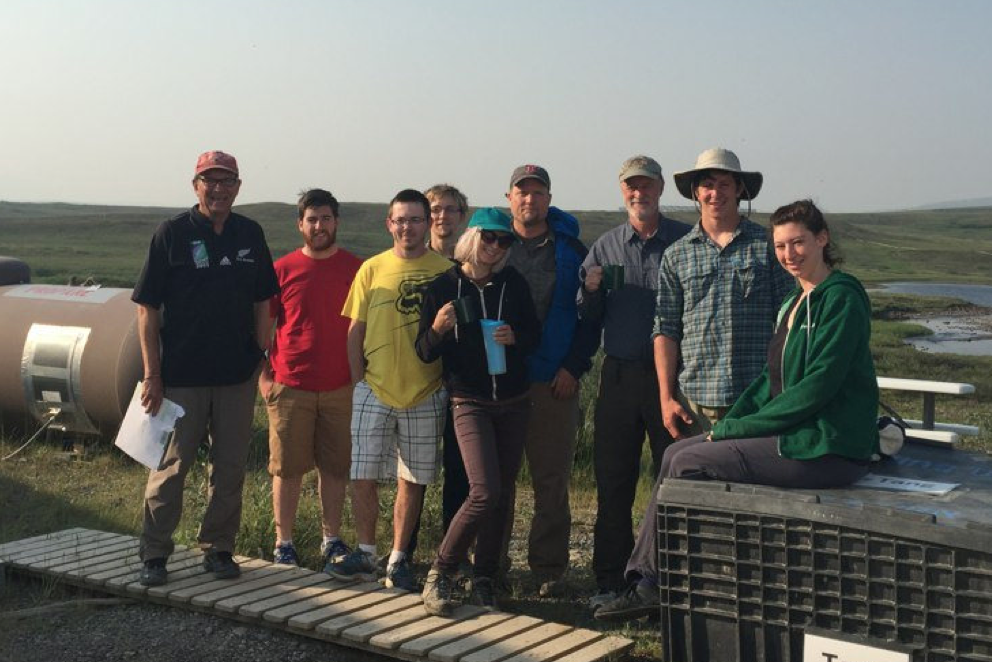Three Wilkes University students are spending part of the summer at the Toolik Lake Field Station, 170 miles north of the Arctic Circle, researching the effects of climate change on plants. The students – seniors Stephen Turner of Plains, Pa., Darrel Dech of Allentown, Pa., and Steve Forney, from Easthampton Township, N.J., – are assisting biology professor Ned Fetcher as part of a $1 million National Science Foundation grant to study the effect of climate change on tussock cottongrass, a plant indigenous to tundra ecosystems in Alaska.
Fetcher, scientist and coordinator of the Institute for Environmental Science and Sustainability at Wilkes, is the principal investigator on a research team that includes scientists from the Ecosystems Center of the Marine Biology Laboratory at Woods Hole, Mass., and the University of Texas at El Paso. The grant funds research entitled “Collaborative Research: Local adaptation in a dominant arctic tundra sedge (Eriophorum vaginatum) and its effects on ecosystem response in a changing climate.”
The students are getting an opportunity to do hands-on research rarely experienced by undergraduates. Such opportunities are a hallmark of a Wilkes education. Dech, a senior biology major, noted the nine-hour drive to the field station from Fairbanks. He said, “It’s been quite the journey getting here, but one I wouldn’t trade for anything. The vast wealth of knowledge found at Toolik Field Station is unbelievable. There are many people, all with different backgrounds, who are more than willing to go out of their way to help and teach you.”
Turner, a senior environmental engineering and earth science major, said his classes prepared him well for the field experience. “The environmental engineering and earth science program at Wilkes is quite exceptional. The curriculum has provided beneficial material that I have been able to apply to a lot of different aspects in and outside of this project,” Turner said.
Forney, who graduated in May with a biology degree, postponed taking a full-time job for the opportunity to work with world-class scientists. “Working in a remote location where very few ever get a chance to visit, observing things people may only read about, and getting hands on experience with true professionals who are famous for their expertise in their fields makes this easily the most meaningful learning experience I’ve ever had.”
Dech added, “This experience has really opened my eyes to the world of field research and everything it entails. The atmosphere of Toolik is set up for a learning community. Everywhere you go, whether it be the community center, the lab, or even just eating dinner, there is talk about research and science. It is truly an amazing place to learn and study. I wish everyone in the biology field were fortunate enough to have this type of learning experience in their undergraduate years. “
The project builds on earlier research by Fetcher and his collaborators that showed that different populations of tussock cottongrass were adapted to the local environment where they originated. The new research will examine the causes and consequences of local adaptation of tussock cottongrass for the tundra ecosystems on the north slope of Alaska. Fetcher and Moody will study the genetic factors that lead to local adaptation. Genetic markers will be used to determine patterns of genetic diversity and gene flow for populations of tussock cottongrass in northern Alaska. The information will provide important insight into the ability of cottongrass to adapt to a rapidly warming climate. The project’s findings may serve as an indicator of how plants’ local adaptation affects plant responses to climate change.






